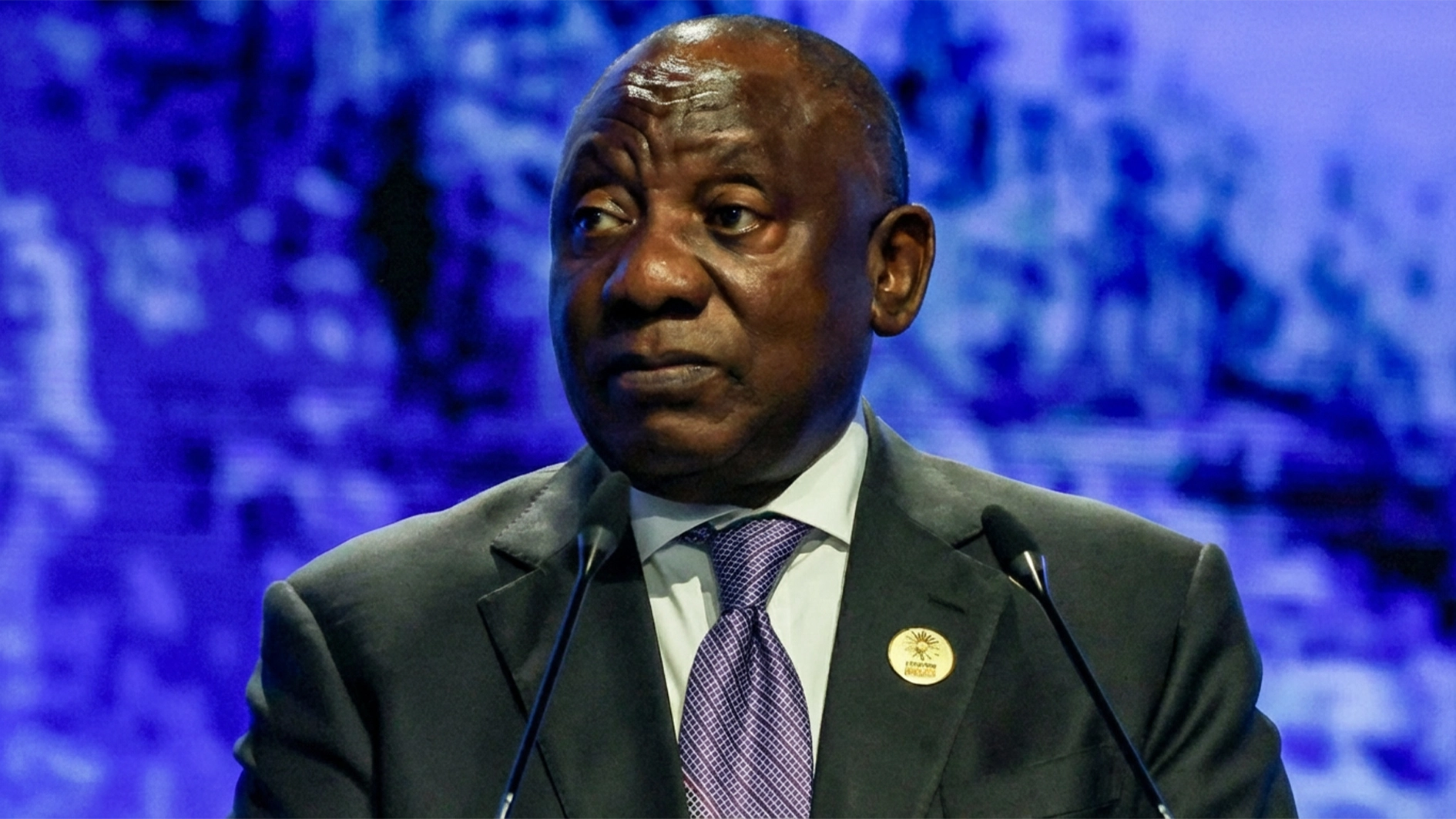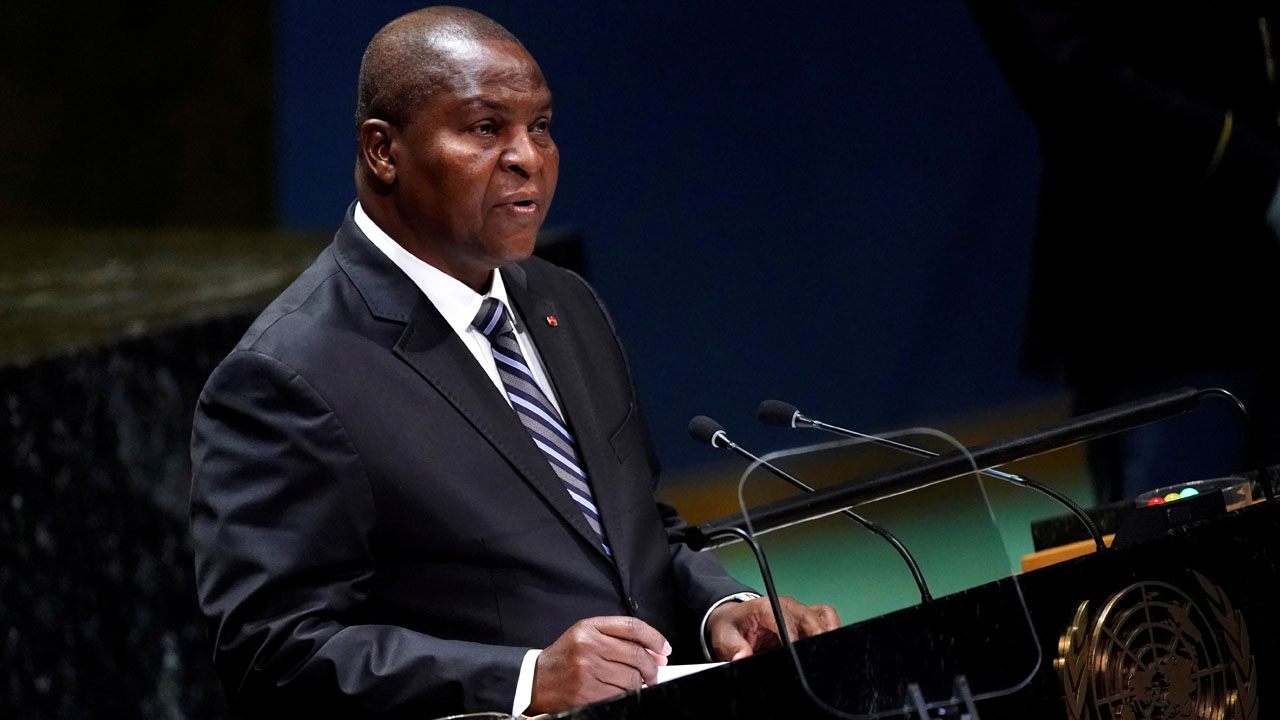Guinea-Bissau’s President Umaro Sissoco Embalo is in Senegal after being detained during a military coup in his country, the government in Dakar said Thursday, as a lead opponent accused him of arranging the uprising.
The military in volatile Guinea-Bissau earlier on Thursday appointed a general as the country’s new leader, a day after seizing power and derailing the announcement of election results.
Opposition candidate Fernando Dias da Costa told AFP he believed he had won Sunday’s election and alleged Embalo — who has also claimed victory — had “organised” the power grab to prevent him taking office.
Embalo arrived “safe and sound” in Senegal in a military plane chartered by its government, the country’s foreign ministry said in a statement.
The coup struck just one day before authorities had been due to announce the provisional results of the presidential ballot and parliamentary polls.
General Horta N’Tam, chief of staff of the army, was designated the country’s new leader for a period of one year.
He took the oath of office at the military’s headquarters on Thursday, declaring: “I have just been sworn in to lead the High Command.”
– Opposition candidate escapes –
N’Tam is considered to have been close in recent years to Embalo, whom he has now replaced.
Dias, who said he was safe and in hiding, was Embalo’s main challenger after the main opposition candidate, Domingos Simoes Pereira, was barred by the supreme court from standing.
“I am the president (elect) of Guinea-Bissau,” Dias told AFP by telephone, adding that he thought he might have garnered around 52 percent of the vote.
“There wasn’t a coup,” he alleged. It was “organised by Mr Embalo”.
Dias said he had escaped from his campaign HQ on Wednesday when armed men came to arrest him.
Pereira, who backed Dias after being excluded from the electoral race, was himself arrested on Wednesday.
The military appointed General Tomas Djassi, formerly the personal chief of staff to President Embalo, as chief of staff of the armed forces on Thursday.
– ‘Necessary measures’ –
Bissau, capital of the west African country, was at a standstill on Thursday, AFP journalists observed.
Most shops and markets were closed and soldiers patrolled the streets.
The new military leaders banned “all media programming” and outlawed protests.
Surrounded by heavily armed soldiers, N’Tam told a press conference on Thursday the military had acted “to block operations that aimed to threaten our democracy”.
He said evidence had been “sufficient to justify the operation”, adding that “necessary measures are urgent and important and require everyone’s participation”.
General Denis N’Canha, head of the presidential military office, told journalists the army was assuming control “until further notice” after a plan involving “drug lords” had been uncovered, including “the introduction of weapons into the country to alter the constitutional order”.
Land, air and sea borders — which were all sealed off on Wednesday — were reportedly reopened, however.
A nationwide curfew was lifted and the High Command ordered the “immediate reopening” of markets, schools and private institutions.
– ‘Grave violation’ –
Members of Guinea-Bissau’s diaspora and researchers told AFP they queried the true motives behind the power grab, which they alleged could ultimately benefit Embalo.
Researchers interviewed by AFP said unverified preliminary results circulating before the coup showed opposition candidate Dias as the election winner.
“This is a coup aimed at preventing the opposition candidate, Fernando Dias, from seizing power,” one West African researcher told AFP on Thursday on condition of anonymity.
“This is the ideal scenario for Mr Embalo, who could, following negotiations, be released and potentially reposition himself for the next elections.”
The African Union on Thursday condemned the coup and demanded Embalo’s immediate and unconditional release, while the chair of West African regional bloc ECOWAS, Julius Maada Bio, called the affair a “grave violation of Guinea-Bissau’s constitutional order”.
The European Union urged “a swift return to the constitutional order and the resumption of the electoral process”.
Sandwiched between Guinea and Senegal, Guinea-Bissau has experienced four coups since independence from Portugal in 1974, as well as multiple attempted coups. Its election results are often contested.
“Every time we feel hopeful about the country, a crisis occurs,” said Mamadou Woury Diallo, a soap seller struggling to earn his living at a market in Bissau. “This can’t go on.”






